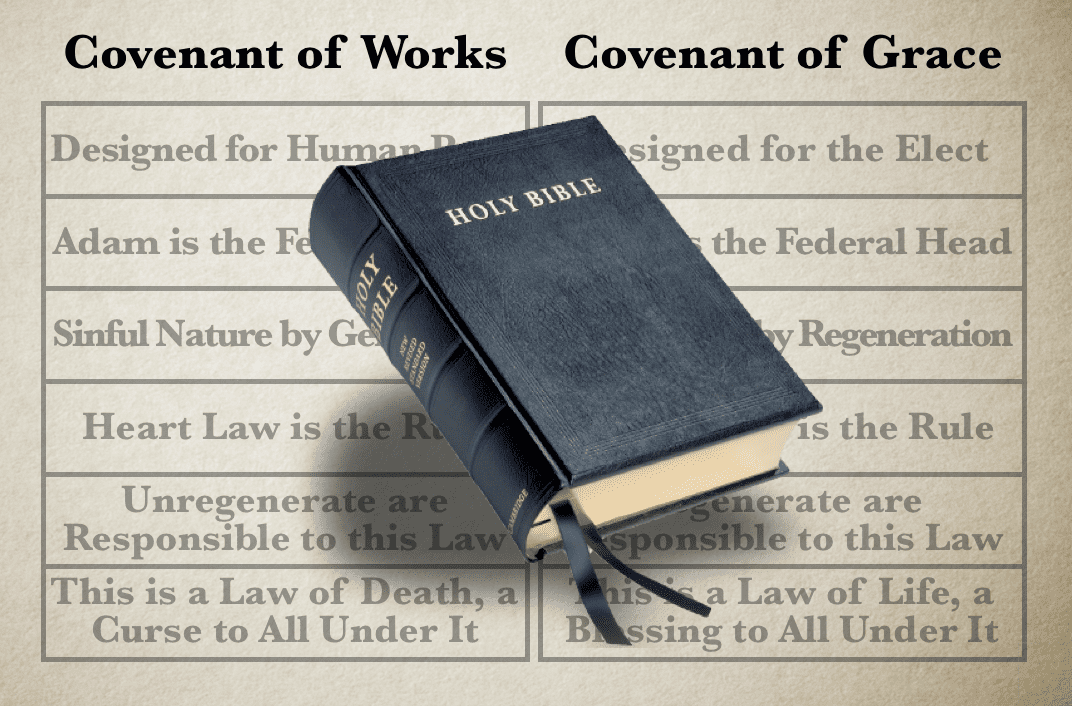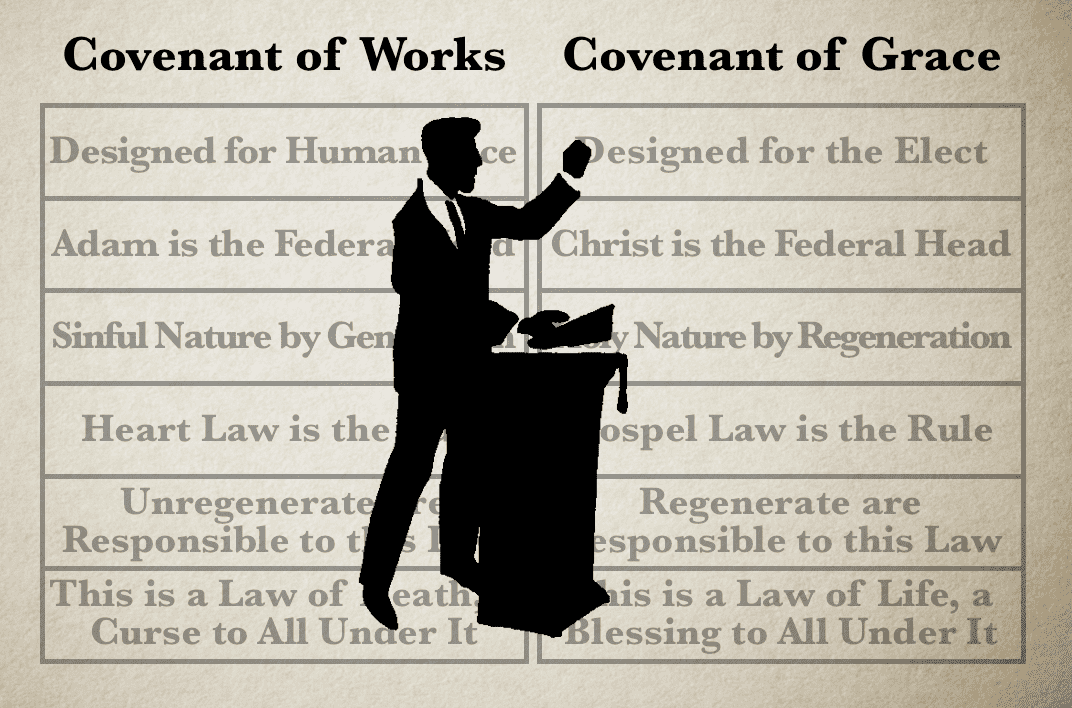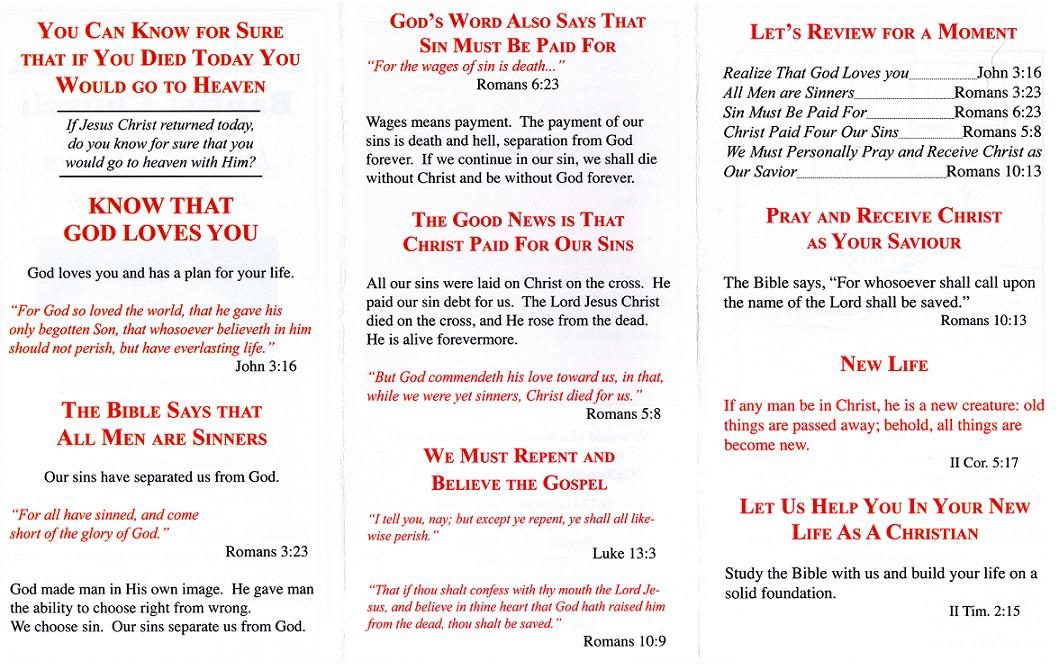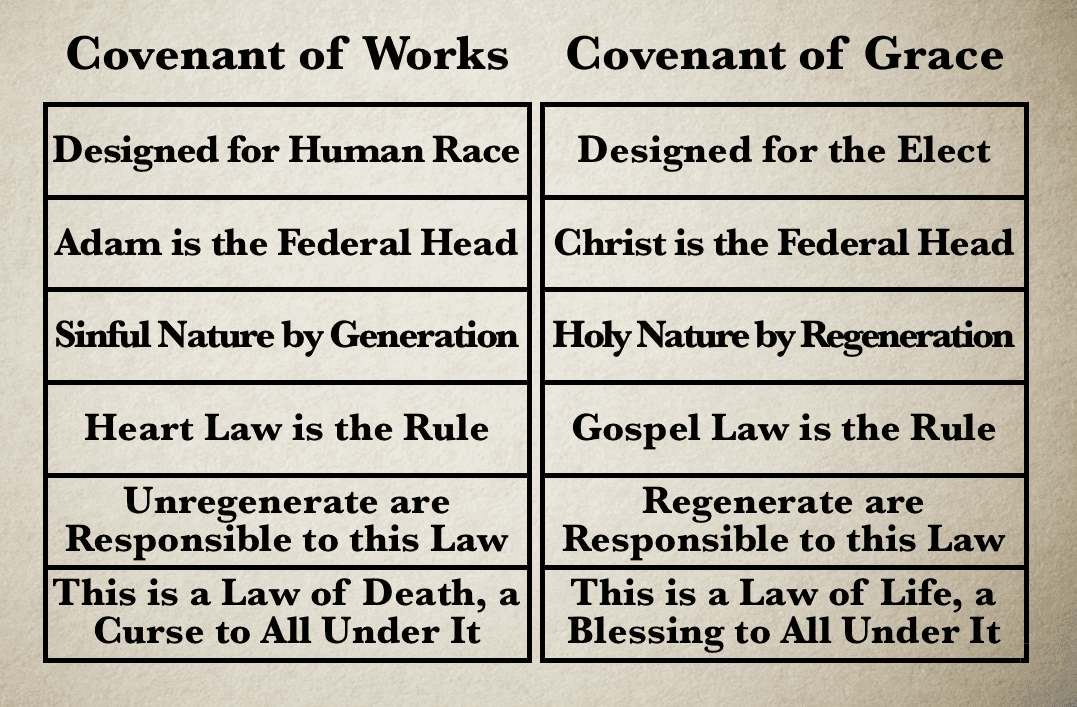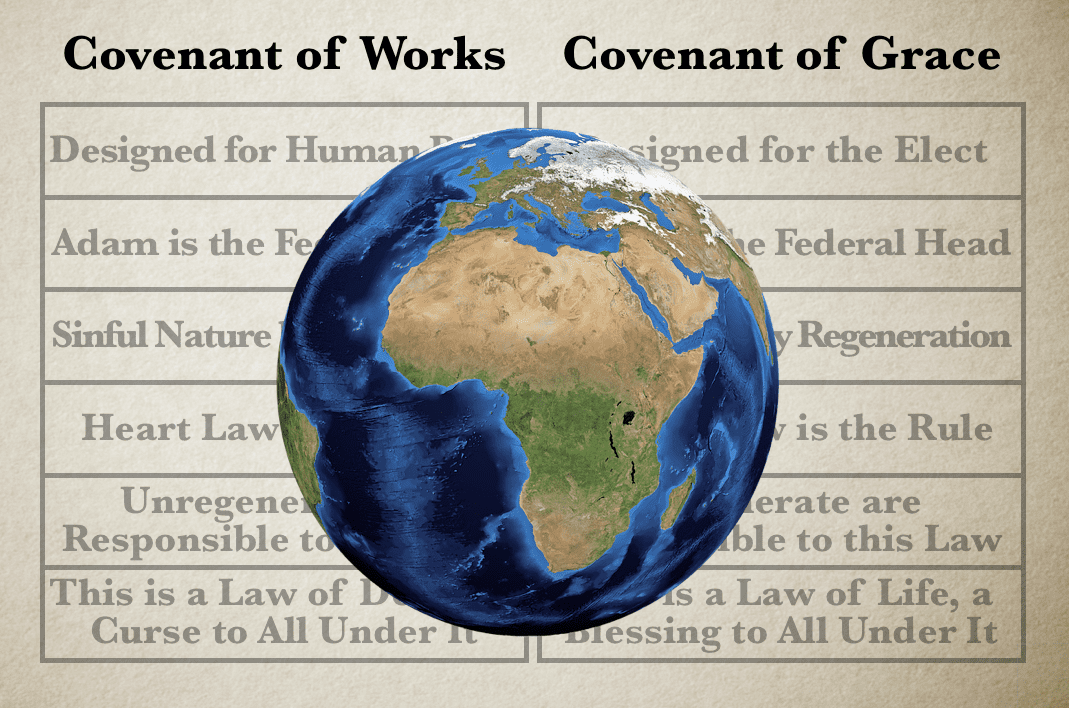
2 The Significance of the Covenant Borders
In his farewell speech to the bishops at Ephesus, the Apostle Paul divided his counsel under two headings: First, a review of his labours and ministry (Acts 20:17-27); Second, a charge to the bishops at Ephesus (Acts 20:28-35). Looking only at the review of his labours and ministry (Acts 20:17-27), Paul reminded the bishops of his past labours at Ephesus—“Ye know, from the first day that I came into Asia, after what manner I have been with you at all seasons, serving the Lord with all humility of mind, and with many tears, and temptations, which befell me by the lying in wait of the Jews.” (Acts 20:17-19) He also informs them of his future labours at Jerusalem—“And now, behold, I go bound in the spirit unto Jerusalem, not knowing the things that shall befall me there: save that the Holy Ghost witnesseth in every city, saying that bonds and afflictions abide me. But none of these things move me, neither count I my life dear unto myself, so that I might finish my course with joy, and the ministry.” (Acts 20:22-24)
Having laid open his past and future labours, Paul then explains the nature of his ministry. He begins by outlining the scope both of the audience and his message. As for his audience, he testified to the Jews and Gentiles (all sinners)—“And how I kept back nothing that was profitable unto you, but have shewed you, and have taught you publicly, and from house to house, testifying both to the Jews, and also to the Greeks.” (Acts 20,21)
As for his preaching, it was a twofold message—“repentance toward God, and faith toward our Lord Jesus Christ.” (Acts 20:20,21)
The first part of this message (repentance toward God) is connected with the Covenant of Works—for under this work covenant the sinner is duty-bound to perfectly keep the law God has inscribed upon the heart; henceforth, violators of the Heart Law are rightfully commanded to repent. However, this repentance toward God is not connected with the Covenant of Grace, and therefore it has no saving value. The second part of this message (faith toward our Lord Jesus Christ) is connected with the Covenant of Grace—for under this gracious covenant the regenerate sinner is duty-bound to exercise saving faith in Christ. However, having been born again, faith in Christ is not so much a duty, as it is a privilege. It is with reference to this second part of Paul’s sermon that he spoke of having received that ministry of the Lord Jesus, “to testify of the gospel of the grace of God.” (Acts 20:24) Of course, the gospel of the grace of God is none other than the Covenant of Grace. And, this Covenant of Grace is also called the Kingdom of God, for Paul said to these bishops—“And now, behold, I know that ye all, among whom I have gone preaching the kingdom of God, shall see my face no more.” (Acts 20:25)
What is most interesting, is how Paul links together the Covenant and Works and the Covenant of Grace as the twofold message which left him pure from the blood of all men who heard him, for he said—“Wherefore I take you to record this day, that I am pure from the blood of all men. For I have not shunned to declare unto you all the counsel of God.” (Acts 20:26,27) What is “all the counsel of God” that Paul did not shun to preach unto them (as well as the other Jews and Gentiles)? It was “repentance toward God (the unregenerate sinner’s duty under the Covenant of Works) and “faith toward the Lord Jesus Christ” (the regenerate sinner’s duty under the Covenant of Grace). Henceforth, Paul said, “I kept back nothing that was profitable unto you, but have shewed you, and have taught you publicly, and from house to house, testifying both to the Jews, and also to the Greeks.” Paul’s twofold message, based squarely on the two Covenants, was “all the counsel of God” which left him blameless before all men who heard him preach.
The significance of this twofold message, or of these two Covenants, cannot be overestimated.
If the Apostle Paul viewed the Covenants as “all the counsel of God”, and if he kept back nothing that was profitable to the brethren by preaching them, and if he considered his faithful declaration of them as clearing him from the blood of all men, then every sinner should give priority to understanding the content and application of these Covenants.
I propose in this study to highlight three areas in which the two Covenants make a significant difference.
1. The Covenants are the Key to the Meaning of Scripture.
John Gill makes this perfectly clear in his Body of Divinity:
“Having treated of the sin and fall of our first parents, and of the breach of the COVENANT OF WORKS by them, and of the sad effects thereof to themselves, and of the woeful consequences of the same to their posterity; of the imputation of their sin, and of the derivation of a corrupt nature unto them; and of actual sins and transgressions flowing from thence, and of the punishment due unto them: I am now come to the dawn of grace to fallen man, to the breakings forth and application of the COVENANT OF GRACE, and the blessings of it to the spiritual seed of Christ among the posterity of Adam.”
Both Covenants were made known to Adam and Eve before they were driven from the garden of Eden; and, both Covenants have continued from Adam and Eve to be the basis on which man is given the authority to have a relationship with God. Unregenerate sinners are subject to the Covenant of Works, whereas regenerate sinners are subject to the Covenant of Grace. Now, with special reference to the Covenant of Grace, Gill continues:
“I have considered the covenant of grace in a former part of this work, as it was a compact in eternity, between the three divine persons, Father, Son, and Spirit; in which each person agreed to take his part in the economy of man’s salvation: and now I shall consider the administration of that covenant in the various periods of time, from the beginning of the world to the end of it. The covenant of grace is but one and the same in all ages, of which Christ is the substance; being given for “a covenant of the people”, of all the people of God, both Jews and Gentiles, who is “the same” in the “yesterday” of the Old Testament, and in the “today” of the New Testament, and “for ever”; he is “the way, the truth, and the life”, the only true way to eternal life; and there never was any other way made known to men since the fall of Adam; no other name under heaven has been given, or will be given, by which men can be saved. The patriarchs before the flood and after, before the law of Moses and under it, before the coming of Christ, and all the saints since, are saved in one and the same way, even “by the grace of our Lord Jesus Christ”; and that is the grace of the covenant, exhibited at different times, and in divers manners.”
Please note, the Covenant of Grace is not only eternal, from the standpoint that the TriUne Jehovah drew up this agreement between themselves before the foundation of the world, but it is also historic. That is, the only true way to eternal life since Adam fell in the garden is encapsulated under the terms and promises of the gracious covenant. Throughout every period of history, sinners have always and only been saved in one and the same way—by the electing love of the Father, the redeeming grace of the Son and the regenerating power of the Holy Spirit. Henceforth, it is the gracious covenant that is the sum and substance of the Holy Scriptures—from Genesis to Revelation.
Now, the Bible is divided into two Testaments (or Covenants). The Old Testament covers 4,000 years of history all of which unfolded before the birth of Christ; the New Testament covers 100 years of history all of which unfolded after the birth of Christ. The question therefore arises, does the Old Testament represent the COVENANT OF WORKS (as if the sinner before the death of Christ was made right with God according to its legal terms), and the New Testament represent the COVENANT OF GRACE (as if the sinner after the death of Christ was made with God according to its gracious terms)? For this answer we need look no further than the continuation of John Gill’s statement:
“For though the covenant [of grace] is but one, there are different administrations of it; particularly two, one before the coming of Christ, and the other after it; which lay the foundation for the distinction of the “first” and “second”, the “old” and the “new” covenant, observed by the author of the epistle to the Hebrews (Heb. 8:7,8,13; 9:1,15; 12:24), for by the first and old covenant, is not meant the covenant of works made with Adam, which had been broke and abrogated long ago; since the apostle is speaking of a covenant waxen old, and ready to vanish away in his time: nor was the covenant of works the first and most ancient covenant; the covenant of grace, as an eternal compact, was before that; but by it is meant the first and most ancient administration of the covenant of grace which reached from the fall of Adam, when the covenant of works was broke, unto the coming of Christ, when it was superseded and vacated by another administration of the same covenant, called therefore the “second” and “new” covenant. The one we commonly call the Old Testament dispensation, and the other the New Testament dispensation; for which there seems to be some foundation in 2 Corinthians 3:6,14 and Hebrews 9:15 these two covenants, or rather the two administrations of the same covenant, are allegorically represented by two women, Hagar and Sarah, the bondwoman and the free (Gal. 4:22-26), which fitly describe the nature and difference of them.”
So, to be clear, the Old Testament does not refer to the Covenant of Works, whereas the New Testament refers to the Covenant of Grace. Rather, the Covenant of Works was introduced to Adam in the garden of Eden, and has been renewed and administered in precisely the same way to every generation since. However, whereas the Covenant of Grace was also introduced to Adam in the garden, yet for the first 4,000 years (before the birth of Christ), it was administered only in prospect of what Christ would accomplish at Calvary—animal sacrifice, tabernacle and temple edifices and furnishings, symbolisms and ceremonies all pointed to the coming Messiah. But when the fulness of time was come, and the Father sent forth His Son, made of a woman, made under the Heart Law, to redeem His people that were under the Heart Law, a new administration of the gracious covenant was ushered forth, because by one offering Christ has perfected for ever His people that are sanctified. It is for this reason, regenerate sinners today have boldness to enter into the holiest by the blood of Jesus, by a new and living way, which He has consecrated for us. It is for this reason regenerate sinners may draw near with a true heart in full assurance of faith, having their hearts sprinkled from an evil conscience.
Yes, everything in Scripture is tied in with these two Covenants—it doesn’t matter if it is Bible history, or prophecy, or poetry, or any other genre of biblical writings. All of it ties in with one or the other of these two Covenants. In fact, if you try reading the Bible without keeping the content and distinctions of these two Covenants always in your mind’s eye, then you will never truly make sense of what the Bible is all about. To understand the defining lines between the Covenants is the KEY to opening up the meaning of God’s Word.
2. The Covenants are the Guide to Faithful Preaching.
The focus for many believers tends to be on getting the gospel out, and not so much on getting the gospel right. Too many preachers and Christians want to run before they can walk (and in some cases, crawl). Their zest for evangelism often exceeds their zeal for edification. They don’t mind investing hours a week knocking on doors and distributing literature, but they cannot seem to justify the time to sharpen their knowledge in “all the counsel of God”.
A typical “Gospel Tract” looks something like this:
The question arises, does this “plan of salvation” look anything like the Apostle Paul’s twofold message? Well, kind of, but not really. There are elements of the two Covenants, but this “plan of salvation” blurs their distinctions. In fact, the confusion between the boundaries of each Covenant is so extensive, that it resembles “another gospel”. If this type of Gospel Tract is examined objectively, then the most dominate feature of it is its brash attempt to get the reader to “make a decision” for Christ. Nowhere is the sinner told of his responsibility to perfectly obey the law God has inscribed upon the heart, yet this is precisely what the unregenerate sinner is responsible to do in that condition. Instead, the sinner is told to repent unto salvation, and to believe the gospel, and to pray to God and to receive Christ as personal Saviour (all duties/privileges given only to those that have already been born again). I won’t bother pointing out the other deficiencies and perversions of the Tract. It is enough that this “plan of salvation” be compared to the plan of salvation preached by Paul—“repentance toward God (Covenant of Works), and faith toward our Lord Jesus Christ (Covenant of Grace).”
The Gospel Tract is very good at mass producing self-reformed and preacher-reformed converts, but it is not very effective leading to Spirit-regenerated converts. The Spirit-regenerated convert is not born again “of blood, nor of the will of the flesh, nor of the will of man, but of God.” (Jn 1:13) If the preacher or Christian desires to preach an accurate message to sinners, then it is the twofold message of the Covenants that must be proclaimed. All sinners are to be instructed in both Covenants, and depending on the spiritual state of each sinner, will determine his/her responsibility towards God. If a sinner is to be delivered from the curse of the law (Covenant of Works), then this is a sovereign work of the Holy Spirit which imparts new life to as many as have been given to Him by the Father and the Son—John 3:8: “The wind bloweth where it listeth, and thou hearest the sound thereof, but canst not tell whence it cometh, and whither it goeth: so is every one that is born of the Spirit.”
3. The Covenants are the Framework of a Biblical Worldview.
These Covenants are the framework for the Christian worldview.
Everything in this world falls within this framework—the whole sweep of creation, in all its varied departments. From Physics, Mathematics, Biology, Botany, Geology, Geography, History, Social and Cultural studies, Art, Music, Language, Politics, Literature, Medicine to the more fun and less important things such as fashion, television, technology, games, sports, social media, etc., etc. You see, the TriUne Jehovah is inextricably connected with all human existence and activity—and, since this whole earth was made FOR man, so every part of creation, and all fields of knowledge, are also inseparably connected with the TriUne Jehovah and His relation to man under one or the other of these Covenants. There is not a single thing in this world that does not in one way or the other fall within the framework of these two Covenants.
Here, let me give you just one practical example. We are living in a state of moral decline in the West. From a biblical worldview, what is the answer? Two prominent Bible teachers in the US have given this response.
First, Doug Wilson:
“The way out of this impasse in our culture wars cannot be to pass this law or that one, but rather to restore the cultural preconditions (through gospel preaching, and only through gospel preaching) which alone make it possible for a society to reflect a biblical understanding of sexuality. Good laws are obviously not bad, but neither are they the gospel. The gospel is the only answer to our cultural crisis.”
Notice, Doug’s answer to the moral decline in the West is the Gospel.
Second, John MacArthur:
“America’s moral decline is a spiritual problem, not a political one, and its solution is the Gospel, not partisan politics.”
Notice, John’s answer to the moral decline in America is also the Gospel.
However, put this problem against the Backdrop of the two Covenants—what is the answer according to this framework?
If the Gospel is the answer to America’s moral decline, then is the answer that America become a Christian nation? You realize, there has never in history existed a Christian nation. Rome attempted to create a Christian nation, but it failed; Great Britain attempted to create a Christian nation, but it failed. The only way for a nation to be “Christian”, is if every citizen of the country has been regenerated by the Spirit of God. America has never been a Christian nation, nor will it ever become one. Great Britain has never been a Christian nation, nor will it ever become one. However, these countries have had a culture grounded in a Judeo-Christian ethos. Within the framework of the two Covenants, isn’t the answer to the moral decline in the West (on a national level) the Covenant of Works? Just consider what God did when He made Israel a morally upright nation—He gave them the Ten Commandments, which was an application of the Heart Law (Covenant of Works). Now, I suggest that is the answer for any nation that is in moral decline—it is the Heart Law that should direct the nation’s national laws. The closer a nation comes to the Heart Law of the Covenant of Works, the more civilized, virtuous, noble and decent a nation will be—Proverbs 14:34: “Righteousness exalteth a nation: but sin is a reproach to any people.”
Nevertheless, the gospel remains the one and only true answer for sinners to have eternal life. It is therefore to be preached to all nations, no matter if they be a morally upright people or a godless and degenerate people. Now, this gospel will have no effect on the majority of citizens in a nation, for they have never been set apart under this gracious covenant. But those individuals that have been loved by the Father and redeemed by the Lord Jesus Christ, they will receive the blessing of the Holy Spirit with a new birth experience. Once again, the two Covenants are the framework for the Christian worldview—the preacher does not proclaim the gospel to give sinners a chance to be saved; the preacher does not offer the gospel to give sinners the choice to be saved; the preacher does not proclaim the gospel in order to see all sinners saved. No, rather, the preacher proclaims the gospel in order that the Spirit of God may conquer the hearts of all such as should be saved; the preacher heralds the gospel in order that Christ may receive unto Himself His purchased possession. The planting and watering of the gospel may belong to the preacher, but the increase belongs entirely to the Lord.
Now, I know, you have probably only looked at these Covenants as a framework for the various branches of theology; you probably don’t really think about them all that much throughout the week. When a hurricane passes through America, or an earthquake shakes the Philippines, or a fire destroys a local council block of flats—when these disasters happen, you don’t view them within this Covenant framework, do you? Or, when you sit in your office at work, or sit under the teachings of your professors at school, or sit in your living room at home with your family—when you go through the ordinary activities of the day, you don’t ever view them within this Covenant framework, do you? Or, when some tragedy strikes and someone you deeply love has suddenly and unexpectedly died, or you’re fired from your job, or you’ve just been given notice from your husband that he’s leaving you, or your teenage son or daughter has run away from home—when you suffer these tragedies, you don’t often view them within this Covenant framework, do you? But you are making a huge mistake by not viewing everything as coming within these parameters. These Covenants are the KEY to everything. Go wrong in the Covenants, and you will inevitably go wrong along the way in any line of investigation—and that holds true whether you’re investigating math calculations, physics equations, social studies or philosophical and political ideologies—it all in one way or the other ties in with these two Covenants. But on a much deeper level, go wrong in the Covenants, and you will find it very difficult to navigate your way through tragedy, afflictions, suffering and grief—these hurtful experiences only make sense within the framework of these Covenants.
These Covenants provide the reason WHY everything is happening as it is happening on the hour, every hour.
These Covenants are significant, because they are the key to the meaning of Scripture; they are the guide to faithful preaching; they are the framework for a biblical worldview.
Jared Smith served twenty years as pastor of a Strict and Particular Baptist church in Kensington (London, England). He now serves as an Evangelist in the Philippines, preaching the gospel, organizing churches and training gospel preachers.
Jared Smith's Online Worship Services
Jared Smith's Sermons
Jared Smith on the Gospel Message
Jared Smith on the Biblical Covenants
Jared Smith on the Gospel Law
Jared Smith on Bible Doctrine
Jared Smith on Bible Reading
Jared Smith's Hymn Studies
Jared Smith on Eldership
Jared Smith's Studies In Genesis
Jared Smith's Studies in Romans
Jared Smith on Various Issues
Jared Smith, Covenant Baptist Church, Philippines
Jared Smith's Maternal Ancestry (Complete)



